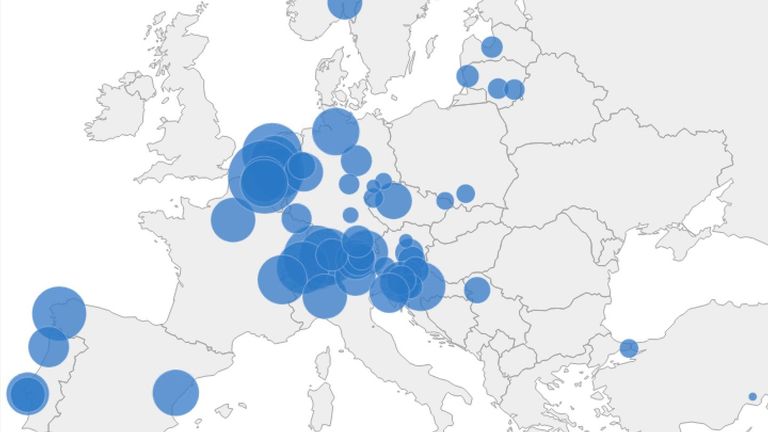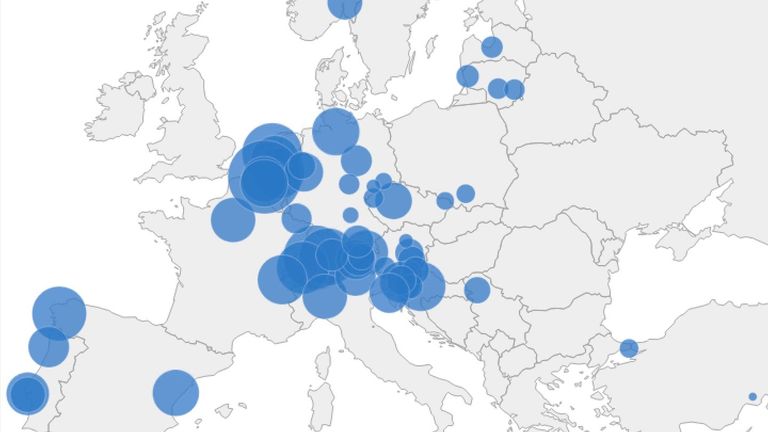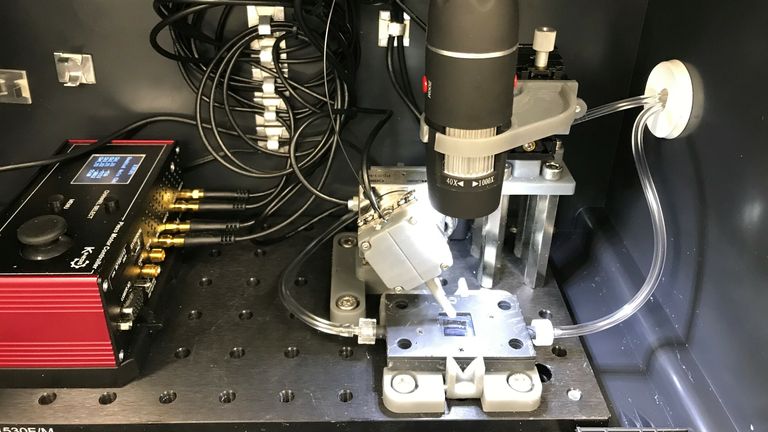
A medical privacy campaigner says technology developed to track the spread of COVID-19 is a new form of surveillance that could be abused.
Phil Booth, coordinator at MedConfidential, warned that increased monitoring of wastewater from sinks, drains and toilets, which can reveal infections and drug use, needs to be properly regulated.
“The concerns will be raised more by the mission creep, the feature creep, the ways in which these miniaturised technologies might get used and abused beyond the pandemic,” he said.
“There needs to be regulation of every sort of technology that can have an effect on people’s lives and on individual people.”
His claims follow the launch by a biotech company in York of what it calls a “mobile surveillance platform” to detect COVID in sewage from individual buildings.
The suitcase-sized equipment can be connected to any drain to send data remotely to a computer where it is interpreted using artificial intelligence.
The firm, Modern Water, says it has static monitors installed at 3,000 sites in 60 countries and can detect “medicines, pesticides, personal care, [and] hormones” in wastewater.
It began testing its Microtox PD mobile COVID monitoring system in UK municipal sewage treatment works last year.
Paul Ryan, chief business development officer at the firm’s parent company, Deepverge, told Sky News he expects the new device to be available for hire within months to monitor COVID in buildings including schools, hospitals and hotels.
“This is about surveillance, this is about identifying the presence of COVID and other pathogens ahead of time,” he said.
“I think there’s a growing consensus that wastewater based epidemiology offers a whole new layer of information which allows national health surveillance.”
The testing of raw sewage has been dramatically increased since the discovery in 2020 that it contains remnants of the COVID-19 virus.
Last year the UK government’s Joint Biosecurity Centre opened a new laboratory near Exeter which is now testing thousands of samples taken from sewage treatment works and individual drains every week.
A report published in September 2021 said the centre’s Environmental Monitoring for Health Protection programme was covering approximately 40 million people in England.
The increased monitoring comes as the identification of illegal drug use from sewage analysis is growing, according to an EU report published last year into monitoring between 2011 and 2020.
The report ranked 80 European towns and cities, none of which are in the UK, for consumption of codeine, amphetamine, methamphetamine and MDMA, based on drug residues found in sewage.
“The results provide a valuable snapshot of the drug flow through the cities involved,” it said.
The UK Health Security Agency, which oversees the national wastewater monitoring programme, told Sky News its wastewater programme follows government data protection standards.
“The data provided to local and national decision-makers relating to COVID-19 is not considered personal data,” the agency said in an emailed response.
“It cannot identify infected individuals or homes as it is designed to provide insights at a community level.”







More Stories
5 Reasons Why Everyone Should Look Forward to Save Earth Mission’s Takeoff Event
Save Earth Mission’s Takeoff Event Countdown Starts: Get Ready to Witness History
The Save Earth Mission: A Global Movement Towards a Sustainable Future